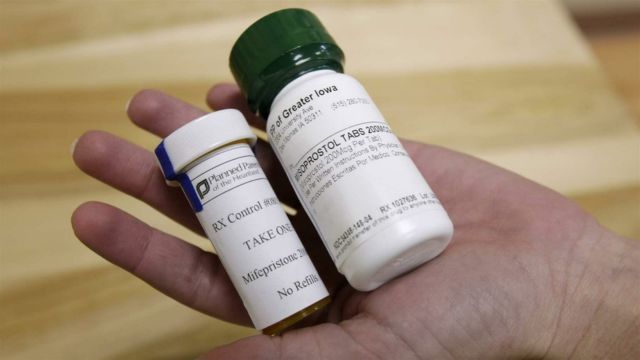Thursday, a judge in Texas said that three other states could go ahead with their plans to change federal rules that make it harder for people all over the U.S. to get the abortion drug mifepristone.
The states of Idaho, Kansas, and Missouri asked the U.S. District Court in Amarillo, Texas, for it. Matthew Kacsmaryk is the only judge who lives there. Former President Donald Trump appointed him and has already decided in favor of a challenge to the pill’s approval.
For the states, the federal Food and Drug Administration should stop telehealth orders for mifepristone and say that it can only be used in the first seven weeks of pregnancy, instead of the current ten weeks. Also, they want to make you go to the doctor three times instead of once to get the drug.
The states say that efforts to make the pills available “undermine state abortion laws and frustrate state law enforcement,” as stated in court papers.
Kacsmaryk, on the other hand, said that the fact that they are not in Texas should not automatically mean they can’t sue there.
The ACLU said Thursday that the case should have been over when the U.S. Supreme Court unanimously protected access to mifepristone last year. In that decision, the justices made a narrow finding that the people who first filed the lawsuit, who were against abortion, did not have the legal right to sue.
What Kacsmaryk did “has left the door open for extremist politicians to continue attacking medication abortion in his courtroom,” the ACLU said.
Since Trump starts his second term as president in a few days, his administration will likely be representing the FDA in the case. Trump has said many times that the states, not the federal government, should handle abortion issues. However, he emphasized during the campaign that he chose Supreme Court judges who were in the majority when the national right to abortion was ruled unconstitutional in 2022.
Since then, people who are against abortion have focused more and more on abortion pills. This is because most abortions in the U.S. are done with drugs instead of surgery. At least four states have seen Republicans propose bills to ban pills so far. These are Indiana, Missouri, New Hampshire, and Tennessee. None of them treat the drugs the same way Louisiana did last year, when it labeled them as controlled dangerous substances.
Before, Kacsmaryk supported a group of doctors and groups that were against abortion and wanted the FDA to take back its approval of mifepristone in 2000 completely.
But the states are going after a smaller problem. Instead of going after the approval itself, they tried to undo several changes made by the FDA that had made it easier for people to get it.
But while the states’ leaders are pushing to severely limit access to the drugs, voters in Missouri sent a different message in November when they passed a ballot measure to undo one of the nation’s strictest bans. In Idaho, it is illegal to have an abortion at any point during life. In Kansas, it is possible to have an abortion until the 22nd week of pregnancy.
Thirteen states in the U.S. have laws that make it illegal to have an abortion at any stage of pregnancy, with a few exceptions. Another four states make it illegal after six weeks, which is when most women don’t even know they’re pregnant.
Some states run by Democrats have passed laws that try to protect doctors who prescribe the pills over telehealth meetings and mail them to patients in states that don’t allow them to be investigated or charged. People who live in states with abortion bans are getting about the same number of abortions as they were before the bans. This is likely because of these medications.

For a medicine abortion, mifepristone is usually mixed with another drug. This type of abortion has made up more than three-fifths of all abortions in the U.S. since the Supreme Court decided to overturn Roe v. Wade.
Plan B and other emergency birth control are usually taken within three days of a possible pregnancy, which is weeks before a woman knows she’s pregnant. These drugs are not the same. Studies have found they’re usually safe and result in completed abortions more than 97% of the time, which is less effective than procedural abortions.







Leave a Comment